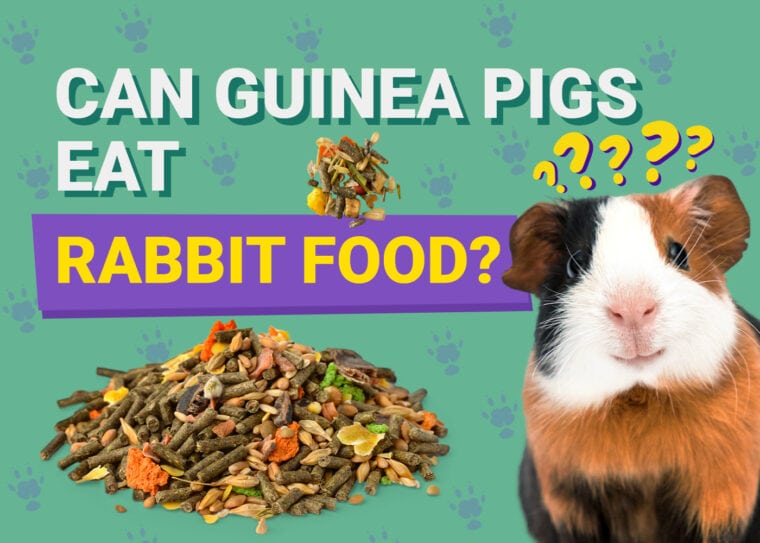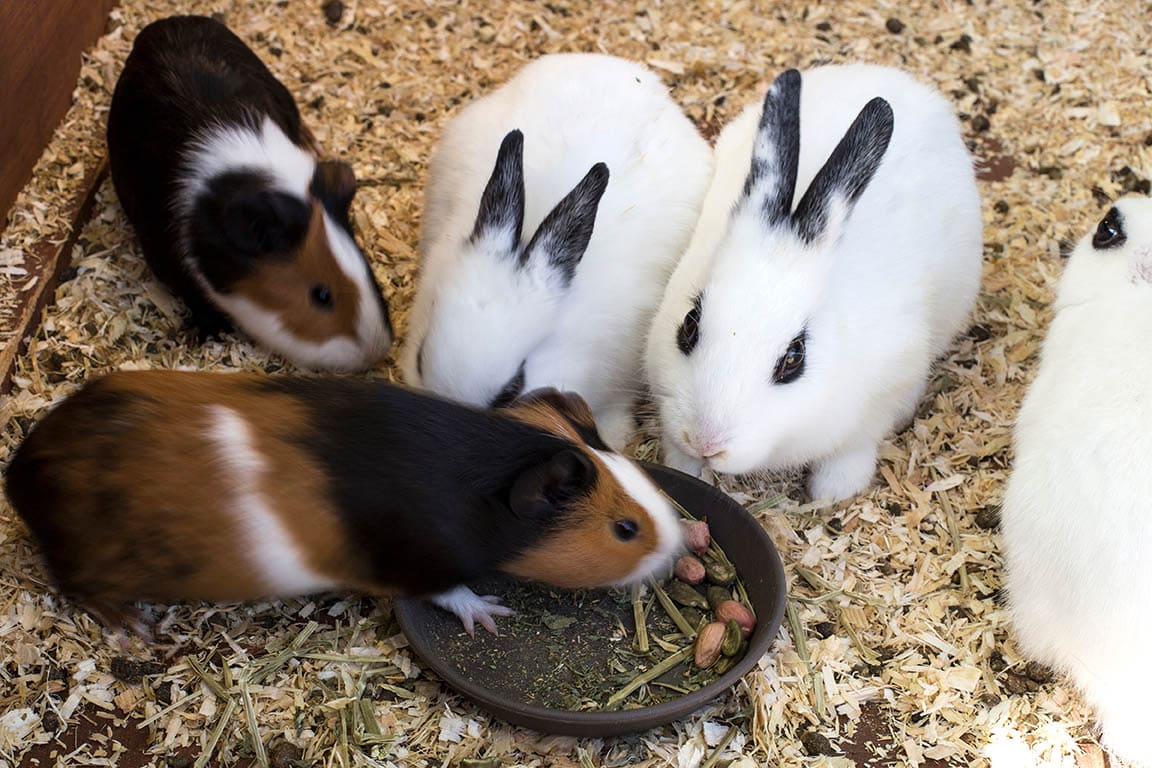
Have you ever mistakenly bought rabbit food for your guinea pig? Some people notice this long after the packet is halfway empty. If you’re ever in a pinch and only have rabbit food to offer your guinea pigs, you might wonder can guinea pigs eat rabbit food? While they can eat it, it does not help them much from a nutritional standpoint.
Rabbits and guinea pigs are both herbivores. The diet mainly consists of veggies, fresh hay, and fruits. They both need vitamins and minerals in their diets, but some of the nutrients in guinea pig food are absent in rabbit food. Frequent consumption of rabbit food by a guinea pig can lead to recurring infections due to a weakened immune system.
Is Rabbit Food Safe for a Guinea Pig?
Most rabbit food does not have enough vitamin C for a guinea pig, which plays a vital role in boosting guinea pigs’ bodies. While rabbits can synthesize this vitamin on their own, guinea pigs cannot. You will not want to put your pet on a diet that isn’t as nutritionally dense as it should be. That being said, rabbit food isn’t toxic for guinea pigs, and a single feeding once in a while shouldn’t be a cause for alarm.

What Nutrients and Food Do Guinea Pigs Require?
Guinea pigs are herbivores that do best on a diet that comprises high quality pellets made specifically for them and an unlimited amount of good quality hay. Examples of appropriate hay for guinea pigs include timothy, orchard, grass, and oat hay. Hay in conjunction with these pellets should form the overwhelming bulk of their diet. The hay should be offered in unlimited amounts, and guinea pigs should be offered a cup or so of pellets every day.
In addition to these two items, guinea pigs also require a daily serving of fresh leafy vegetables (also about a cup) that are high in vitamin C. Examples of such vegetables include red peppers, parsley, tomatoes, spinach, and asparagus. Last but not least, guinea pigs should have access to fresh, clean drinking water at all times.
The nutritional requirement of vitamin C in guinea pigs is ~10 mg vitamin C/kg body weight daily for maintenance and 30 mg vitamin C/kg body weight daily for pregnancy. The requirements of other nutrients (for example, carbohydrates, protein, and fat) vary according to a guinea pig’s age, growth stage, pregnancy status, and health status.
Is Guinea Pig Food Safe for Rabbits?
For rabbits, guinea pig food isn’t toxic, and the only difference in most guinea pig food is the addition of vitamin C. Consuming too much vitamin C though (which can happen if your rabbit regularly eats excessive amounts of guinea pig food) could promote kidney stones and reduce some vitamins, such as vitamin B12.
It is worth noting that in some instances, supplementing a rabbit’s diet with vitamin C can be beneficial (for example, when they are ill or recovering from an illness). It is also worth noting that in some cases, Vitamin C can be used in rabbits to treat some renal issues – therefore, the inclusion of guinea pig pellets might be beneficial in some circumstances.
A major downside of guinea pig pellets is that though they are fortified with vitamin C, the ingredient doesn’t, unfortunately, last as long as the pellets do and can degrade in a matter of months once the container is opened. Therefore, it shouldn’t be considered as medicine for your rabbit if they require more vitamin C in their diet. If your rabbit requires vitamin C supplements, use appropriate options prescribed by your veterinarian.
Another factor to consider for both guinea pigs and rabbits is that their primary diet consists of high quality hay fed in unlimited amounts. Pellets for both these pets should be offered in smaller amounts than hay, so in practice, consumption of small amounts of pellets intended for another pet isn’t an immediate cause for major concern.

Conclusion
As much as guinea pigs and rabbits have similarities, feeding guinea pigs rabbit food is not advisable as it often doesn’t have enough vitamin C for them. Although they both require similar nutrients to thrive, the requirements are not identical. Thus, it would help if you fed your cavies with the designated food for them. That being said, the occasional serving of rabbit pellets shouldn’t be harmful for your guinea pig. Likewise, a rabbit can, on occasion, feed on some guinea pig pellets without much concern for a pet owner as well.
See also:










